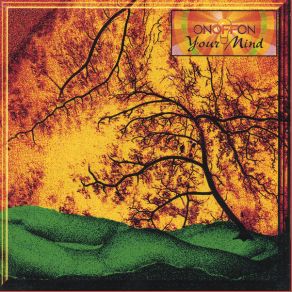Your Mind
Download links and information about Your Mind by Onoffon. This album was released in 1999 and it belongs to Jazz, Rock genres. It contains 11 tracks with total duration of 53:37 minutes.

|
|
|---|---|
| Artist: | Onoffon |
| Release date: | 1999 |
| Genre: | Jazz, Rock |
| Tracks: | 11 |
| Duration: | 53:37 |
| Buy it NOW at: | |
| Buy on iTunes $9.99 | |
Tracks
[Edit]| No. | Title | Length |
|---|---|---|
| 1. | Your Mind | 4:00 |
| 2. | Shadowglass | 4:44 |
| 3. | Alley Want | 6:22 |
| 4. | Mardi Gras | 4:02 |
| 5. | Ocean's Cry | 6:00 |
| 6. | Bebe's Song | 3:04 |
| 7. | For Hell Sake's | 6:28 |
| 8. | Opus | 5:29 |
| 9. | You Know I Can't | 4:08 |
| 10. | Wet Legs | 5:11 |
| 11. | Credits | 4:09 |
Details
[Edit]Opening with some atonal scraping noise courtesy of what sounds like toy piano on the opening title cut, Onoffon make it known from the beginning that Your Mind is an entirely different animal from the band's first album. While its wonderful instrumental prowess and locked-down ensemble playing are still in place, Onoffon take a distinct left turn on Your Mind, dispensing with its former new age-isms and opting to add world music, New Orleans, and Latin influences while maintaining its exciting jazz-rock and progressive direction. Slight blues touches also remain intact, especially when Don Lake pulls out harmonica, as he does on "Alley Want." The title song also shows the band incorporating fractured bits of avant-garde composition, intriguingly placed in the context of pseudo-bop fusion. The monster that results sounds a bit like Primus trying to play jazz. Although Onoffon does not show this atonal side again on the album, it has upped the stylistic ante of their music. The bandmembers have more fully revealed a lighthearted side of their music, as well, from the appealingly upbeat "Mardi Gras," which has a sneaky world beat garnished with Latin percussion and soprano sax, to Von Babasin's light jazz crooning on the pre-rock pop of "Bebe's Song." They even have an abruptly erotic ode to the delights of women, "Wet Legs," and, conceptually, the album seems to lean toward the most rascally thoughts of men. "Shadowglass" is a lovely instrumental that demonstrates all the band's strengths: individual chops that blend into excellent ensemble playing, fluid melodicism, and skilled songwriting. "Opus," too, shows Onoffon at the height of its instrumental abilities, with its improvisational harmonic coloring lending a psychedelic flavor to the song. The band's lead vocals are still the weakest part of the Onoffon equation, being neither gritty enough to contrast the mellifluousness of the music nor airy enough to complement it, and, indeed, the vocals seem to be downplayed quite a bit on Your Mind, never becoming intrusive. Some of the songs that have vocals are even primarily instrumental cuts, and the thing that a listener comes away from the album with is the imagistic music with its accomplished stylistic interweaving.